ASTM C67 Test Fixture
ASTM C67 covers procedures for the sampling and testing of brick and structural clay tile.
Please Contact With Us For More Information
- Description
- Reviews (0)
- TECHNICAL SPECIFICATIONS
Description
Description
ASTM C67 – Standard Test Methods for Sampling and Testing Brick and Structural Clay Tile
ASTM C67 covers procedures for the sampling and testing of brick and structural clay tile.
Although not necessarily applicable to all types of units, tests include modulus of rupture, compressive strength, absorption, saturation coefficient, effect of
freezing and thawing, efflorescence, initial rate of absorption and determination of weight, size, warpage, length change, and void area.
The text of this standard references notes and footnotes which provide explanatory material.
These notes and footnotes (excluding those in tables and figures) shall not be considered as requirements of the standard.
ASTM C67 / Selection and Preparation of Test Specimens
For the purpose of these tests, full-size brick, tile, or solid masonry units shall be selected by the purchaser or by the purchaser’s authorized representative.
Specimens shall be representative of the lot of units from which they are selected and shall include specimens representative of the complete range of colors,
textures, and sizes.
Specimens shall be free of or brushed to remove dirt, mud, mortar, or other foreign materials unassociated with the manufacturing process.
Brushes used to remove foreign material shall have bristles of plastic (polymer) or horsehair.
Wire brushes shall not be used for preparing specimens for testing.
Specimens exhibiting foreign material that is not removed by brushing shall be discarded to ensure that damaged or contaminated specimens are not tested.
ASTM C67 / Number of Specimens
Brick—For the modulus of rupture, compressive strength, abrasion resistance, and absorption determinations, at least ten individual brick shall be selected
for lots of 1 000 000 brick or fraction thereof.
For larger lots, five Additional specimens shall be selected from each additional 500 000 brick or fraction thereof.
Additional specimens are taken at the discretion of the purchaser.
Structural Clay Tile—For the weight determination and for compressive strength and absorption tests, at least five tile shall be selected from each lot of
250 tons (226.8 Mg) or fraction thereof.
For larger lots, five additional specimens shall be tested for each 500 tons (453.6 Mg) or fraction thereof.
In no case shall less than five tile be taken. Additional specimens are taken at the discretion of the purchaser.
ASTM C67 / Modulus of Rupture (Flexure Test)
Test Specimens—The test specimens shall consist of whole dry full-size units . Five such specimens shall be tested.
ASTM C67 / Procedure
Support the test specimen flatwise unless specified and reported otherwise (that is, apply the load in the direction of the depth of the unit) on a span
approximately 1 in. (25.4 mm) less than the basic unit length and loaded at midspan.
If the specimens have recesses (panels or depressions) place them so that such recesses are on the compression side.
Apply the load to the upper surface of the specimen through a steel bearing plate 1⁄4 in. (6.35 mm) in thickness and 11⁄2 in. (38.10 mm) in width and of a length
at least equal to the width of the specimen.
Make sure the supports for the test specimen are free to rotate in the longitudinal and transverse directions of the test specimen and adjust them so that they will
exert no force in these directions.
ASTM C67 / Speed of Testing
The rate of loading shall not exceed 2000 lbf (8896 N)/min. but this requirement is considered as being met if the speed of the moving head of the testing machine
immediately prior to application of the load is notmore than 0.05 in. (1.27 mm)/min.
ASTM C67 / Compressive Strength
Test Specimens
Brick—The test specimens shall consist of dry half brick (see 5.1.1), the full height and width of the unit, with a length equal to one half the full length of
the unit 61 in. (25.4 mm), except as described below.
If the test specimen, described above, exceeds the testing machine capacity, the test specimens shall consist of dry pieces of brick, the full height and
width of the unit, with a length not less than one quarter of the full length of the unit, and with a gross cross-sectional area perpendicular to bearing not
less than 14 in.2 (90.3 cm2).
Test specimens shall be obtained by any method that will produce, without shattering or cracking, a specimen with approximately plane and parallel ends.
Five specimens shall be tested.
Structural Clay Tile—Test five dry tile specimens in a bearing bed length equal to the width 61 in. (25.4 mm); or test full-size units.
ASTM C67 / Capping Test Specimens
All specimens shall be dry and cool before any portion of the capping procedure is carried out.
If the surface which will become bearing surfaces during the compression test are recessed or paneled, fill the depressions with a mortar composed of 1 part
by weight of quick-hardening cement conforming to the requirements for Type III cement of Specification C 150, and 2 parts by weight of sand.
Age the specimens at least 48 h before capping them. Where the recess exceeds 1⁄2 in. (12.7 mm), use a brick or tile slab section or metal plate as a core fill.
*** An electromechanical universal testing machine can be used for testing for flexural and compressive strength.
***PARSROS offers several types of grips and fixtures which will enable you to perform a variety of tests that are
accurate and repeatable.
Reviews (0)
TECHNICAL SPECIFICATIONS
Please Contact with our engineers so that we can find and offer Best Universal Tensile Test Machines , Grips , Jaws and Other Accessories for your operations


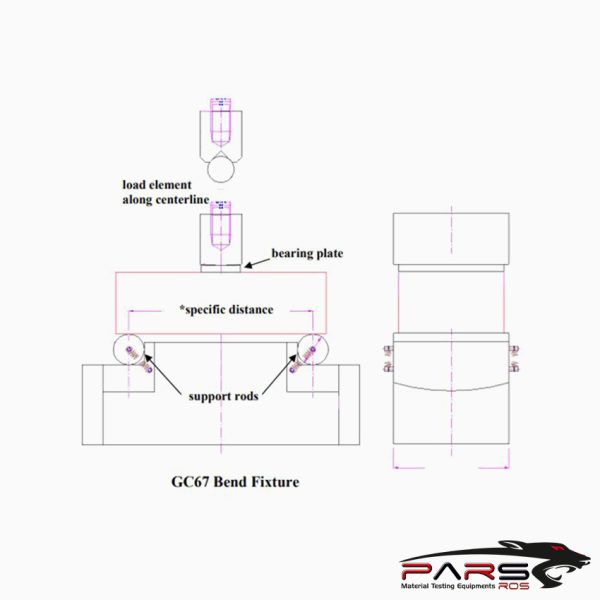
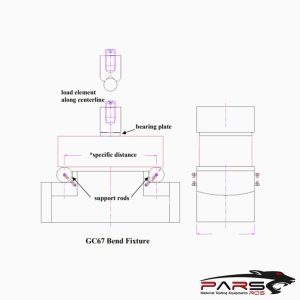
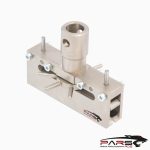
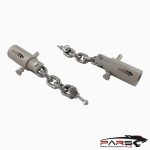
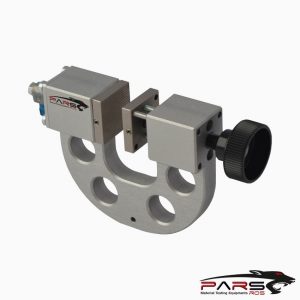
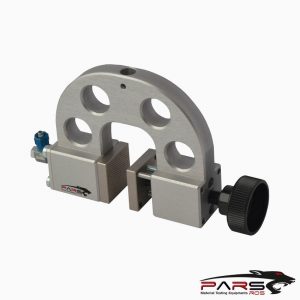
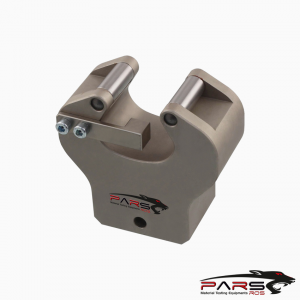
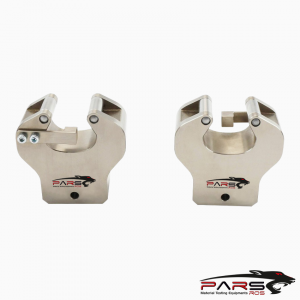
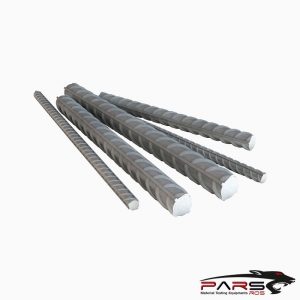
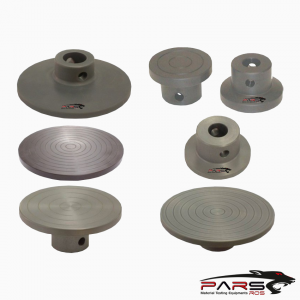
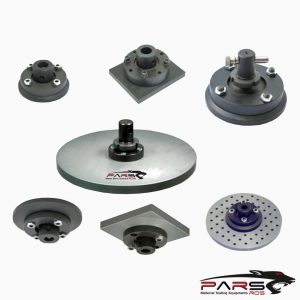
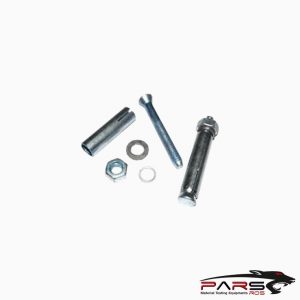
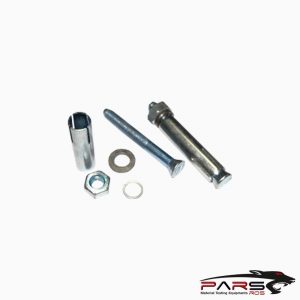
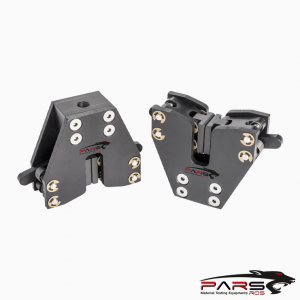
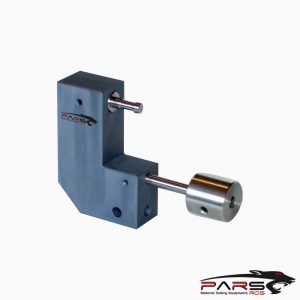
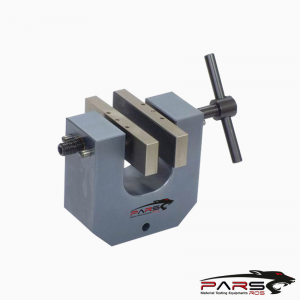
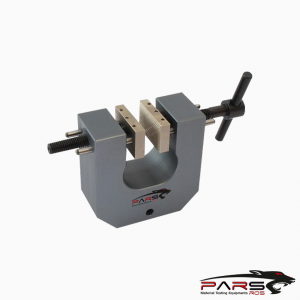
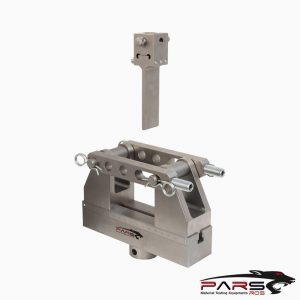
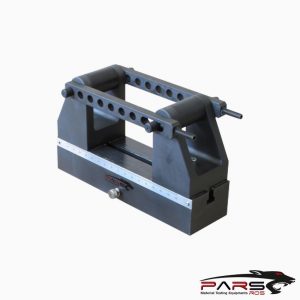
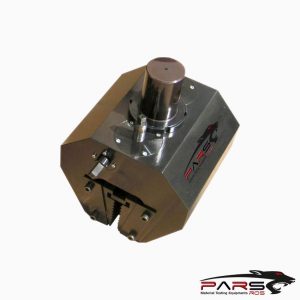
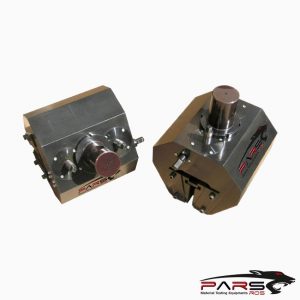
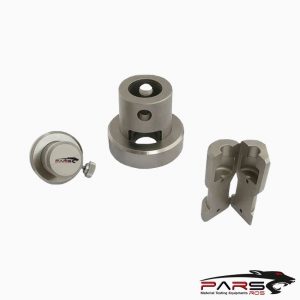
Leave a Reply